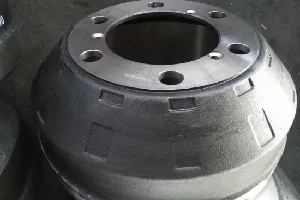
-
 Afrikaans
Afrikaans -
 Albanian
Albanian -
 Amharic
Amharic -
 Arabic
Arabic -
 Armenian
Armenian -
 Azerbaijani
Azerbaijani -
 Basque
Basque -
 Belarusian
Belarusian -
 Bengali
Bengali -
 Bosnian
Bosnian -
 Bulgarian
Bulgarian -
 Catalan
Catalan -
 Cebuano
Cebuano -
 Corsican
Corsican -
 Croatian
Croatian -
 Czech
Czech -
 Danish
Danish -
 Dutch
Dutch -
 English
English -
 Esperanto
Esperanto -
 Estonian
Estonian -
 Finnish
Finnish -
 French
French -
 Frisian
Frisian -
 Galician
Galician -
 Georgian
Georgian -
 German
German -
 Greek
Greek -
 Gujarati
Gujarati -
 Haitian Creole
Haitian Creole -
 hausa
hausa -
 hawaiian
hawaiian -
 Hebrew
Hebrew -
 Hindi
Hindi -
 Miao
Miao -
 Hungarian
Hungarian -
 Icelandic
Icelandic -
 igbo
igbo -
 Indonesian
Indonesian -
 irish
irish -
 Italian
Italian -
 Japanese
Japanese -
 Javanese
Javanese -
 Kannada
Kannada -
 kazakh
kazakh -
 Khmer
Khmer -
 Rwandese
Rwandese -
 Korean
Korean -
 Kurdish
Kurdish -
 Kyrgyz
Kyrgyz -
 Lao
Lao -
 Latin
Latin -
 Latvian
Latvian -
 Lithuanian
Lithuanian -
 Luxembourgish
Luxembourgish -
 Macedonian
Macedonian -
 Malgashi
Malgashi -
 Malay
Malay -
 Malayalam
Malayalam -
 Maltese
Maltese -
 Maori
Maori -
 Marathi
Marathi -
 Mongolian
Mongolian -
 Myanmar
Myanmar -
 Nepali
Nepali -
 Norwegian
Norwegian -
 Norwegian
Norwegian -
 Occitan
Occitan -
 Pashto
Pashto -
 Persian
Persian -
 Polish
Polish -
 Portuguese
Portuguese -
 Punjabi
Punjabi -
 Romanian
Romanian -
 Russian
Russian -
 Samoan
Samoan -
 Scottish Gaelic
Scottish Gaelic -
 Serbian
Serbian -
 Sesotho
Sesotho -
 Shona
Shona -
 Sindhi
Sindhi -
 Sinhala
Sinhala -
 Slovak
Slovak -
 Slovenian
Slovenian -
 Somali
Somali -
 Spanish
Spanish -
 Sundanese
Sundanese -
 Swahili
Swahili -
 Swedish
Swedish -
 Tagalog
Tagalog -
 Tajik
Tajik -
 Tamil
Tamil -
 Tatar
Tatar -
 Telugu
Telugu -
 Thai
Thai -
 Turkish
Turkish -
 Turkmen
Turkmen -
 Ukrainian
Ukrainian -
 Urdu
Urdu -
 Uighur
Uighur -
 Uzbek
Uzbek -
 Vietnamese
Vietnamese -
 Welsh
Welsh -
 Bantu
Bantu -
 Yiddish
Yiddish -
 Yoruba
Yoruba -
 Zulu
Zulu
can you convert drum brakes to disc brakes
Can You Convert Drum Brakes to Disc Brakes?
Upgrading a vehicle's braking system can significantly enhance safety and performance. Among the various options, converting drum brakes to disc brakes is a popular choice for many car enthusiasts and drivers seeking improved stopping power and handling. This article will explore the feasibility, benefits, and considerations of making such a conversion.
Understanding the Basics
Drum brakes and disc brakes operate on different principles. Drum brakes use a cylindrical drum that rotates with the wheel. When the brakes are applied, brake shoes press against the inner surface of the drum to create friction, slowing down the vehicle. Conversely, disc brakes use a rotor that spins with the wheel, where brake pads clamp down on the rotor to create friction. The fundamental difference in these designs leads to varied performance characteristics.
Benefits of Converting to Disc Brakes
1. Improved Stopping Power Disc brakes typically offer better stopping power, particularly in high-performance and heavy-load situations. They dissipate heat more effectively, reducing brake fade during extended use.
2. Faster Cooling Since the rotors are exposed to air, they cool down quicker than drum brakes, making them less prone to overheating. This is especially critical for vehicles that are used in demanding conditions.
3. Better Wet Performance Disc brakes tend to perform better in wet conditions, as water can drain off more easily compared to drum brakes, which may suffer from moisture build-up.
4. Ease of Maintenance Disc brake systems are generally easier to inspect and service. Changing pads is simpler than adjusting or replacing drum shoes, making routine maintenance less labor-intensive.
can you convert drum brakes to disc brakes

Considerations for Conversion
While converting drum brakes to disc brakes presents several advantages, there are also crucial considerations
1. Cost The conversion can be expensive. Aside from the cost of the new disc brake components, there may be additional expenses for labor, maintenance, and potential modifications to suspension or wheel components.
2. Compatibility Not all vehicles are easily compatible with disc brakes. Depending on the vehicle's make and model, additional modifications might be necessary. It's essential to research and ensure that the desired components fit properly.
3. Legal Regulations In some regions, modifications to brake systems can fall under legal scrutiny. It’s advisable to check local laws regarding vehicle modifications to ensure compliance to avoid penalties.
4. Complexity of Installation Depending on the existing brake system, converting to disc brakes can require significant mechanical knowledge and tools. It may be best to consult with a professional mechanic to ensure the job is done correctly.
5. Vehicle Type The necessity and benefits of such a conversion can also depend on the type of vehicle. For instance, upgrading a performance vehicle or older cars can provide noticeable benefits versus a newer vehicle already equipped with efficient braking systems.
Conclusion
Converting drum brakes to disc brakes can be a worthwhile upgrade for many vehicles, offering improved performance, safety, and reliability. However, it is essential to weigh the benefits against the costs and challenges of installation. Whether for performance enhancement or simply for peace of mind, this conversion could significantly enhance your driving experience. Always consult with professionals and conduct thorough research to make an informed decision.
-
What Are Drum BrakesNewsJul.07,2025
-
Understanding Brake Drum MaterialNewsJul.07,2025
-
Semi-Trailer Brake Drum: A Key Component for Extreme Loads and Long-Distance TransportNewsJul.07,2025
-
Drum Brake Pads for SaleNewsJul.07,2025
-
Brake Drums for SaleNewsJul.07,2025
-
Brake Drum ManufacturerNewsJul.07,2025
-
Aluminum Brake Drums: The Future of High-Performance CarsNewsJul.07,2025
